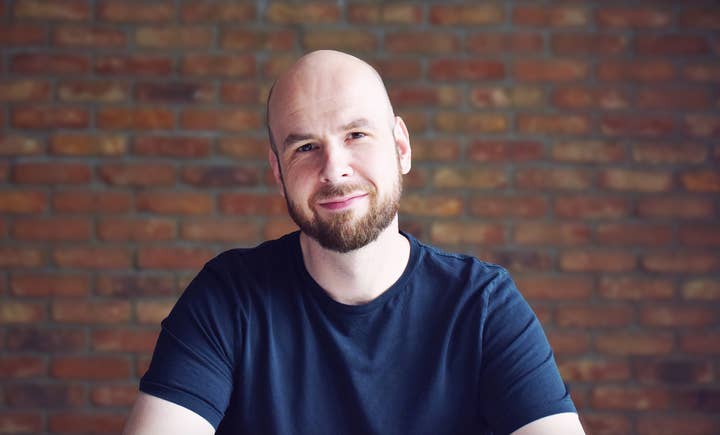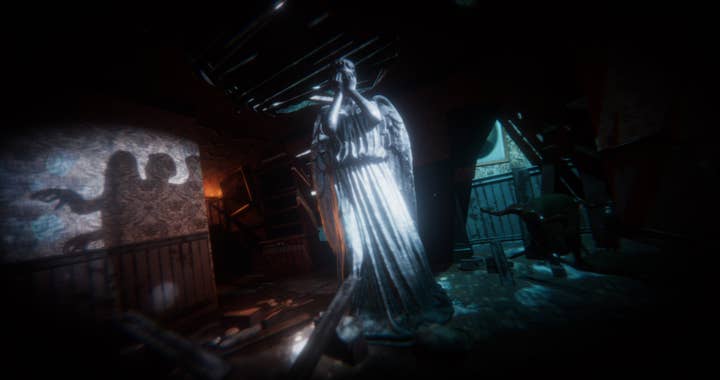PlayStack makes PC/console move with a Doctor Who VR game
The smartphone specialist has also signed three other PC/console games
Indie publisher PlayStack is making a significant move into PC and console publishing, and it's kicking things off with a Doctor Who VR game.
Doctor Who: The Edge of Time is being created by Maze Theory, the UK studio that's also working on the Peaky Blinders VR project. It will launch on all devices, including PlayStation VR, in the autumn. Three further PC and console games will follow. These three games will not be VR titles and, unlike PlayStack's mobile offerings, will not be free-to-play.
PlayStack is best known for publishing smartphone titles -- it has released ten mobile games since its debut three years ago. However, it has always maintained that it would be platform agnostic.
"We're a mobile-first publisher, but the ideology of PlayStack when it was founded was that we wouldn't be snobbish about any platform or monetisation system," says head of developer partnerships Rob Crossley. "When I joined the company two years ago, it was my mission to find mobile games, but it was also to find PC and console games. As of today, I have now assessed 1,545 games and I'm delighted that we've signed four incredible games on PC and console.

"It took us a long time to get here. We have been working behind the scenes to expand our resources, and to find the right people who can deliver the right results. It's no good just saying you want to do PC and console, you need an absolute iron cast credible strategy."
PlayStack wouldn't reveal how much investment it's making in these four titles other than it's, "a significant sum of money". Crossley says PlayStack is not hindered by its investment capabilities, although based on past titles the firm can fund up to £750,000 per game.
"I am cautious about saying that, because if someone came to us with a game that we wanted to get behind and it was £800,000... it's not like it's an automatic no," Crossley says. "In publishing, the most certain word you can use is 'probably.' The whole games industry is in such amazing flux, that you can never say anything with absolute certainty. That's why we take things on a case-by-case basis."
Crossley says that roughly 30% of PlayStack's output will be PC and console games, simply due to the resources the team has at its disposal. The company has been careful with the games its selected, having signed fewer than 1% of the titles it's looked at.
"I have now assessed 1,545 games and I'm delighted that we've signed four incredible games on PC and console"
"You have to be fussy," he explains. "When you sign a game, it is a full time commitment. It is day-to-day support. There's so much strategy work, marketing work, platform discussions. If you do not fully believe in that game, then you're screwed. We only sign games that we are fully committed to and that we will go all the way with.
"If you look at our reputation, we never leave our developers and our partners hanging. When I am trying to close a deal on a game, I say to developers that you can see the games that we've published on our website, and we invite them to speak to those developers. Speak to them behind our backs and see what we're really like, because I'm super confident that they'll say fantastic things about us.
"Our reputation means absolutely everything to us. It has to, because we are a young company. There are a lot of publishers with established identities, and established catalogues and games that you know will be coming out in the future, so our reputation is crucial. We are definitely not one of those publishers that wants to just sign a bunch of games and see what happens. We sign less, but we commit more."
Crossley rejects the idea of the PlayStack identity. He says the company's reputation as a smartphone publisher isn't always a positive, and that becoming focused on a certain type of product has its drawbacks.

"I have had about a thousand interactions with PC and console developers, and I've lost count of the times that they said they thought we did mobile games. This is what happened: our second game [Snipers vs Thieves] got 30 million players. We had to build a business around that. It became a self-fulfilling prophecy. Because people find out that you had this success with this platform, they think they've got a game a bit like the one you did, and so they'll pitch it to you. When I joined the company, I really wanted to broaden into PC and console, but every game that was being pitched to me was mobile.
"Developers gravitate towards you because they know what you do. But you know what, I don't want us to do that. I know that there's a lot of publishers -- and I respect why -- who have a catalogue of games that are similar in tone. Or similar in audience. I would like us to stay as open-minded as possible forever. We've had fantastic success on mobile, and of course we are going to carry on there. But we want to keep open minded to other genres and opportunities.
"If someone pitched me a Pilotwings, I'd probably sign it"
"The key metric for survival in any business is adapting and evolving and being flexible. If you go down one narrow path... sure, things might be great for you right now, but in the future things might change."
The four games the company has signed are all very different, Crossley says. The one thing that unites them is that they are in sub-genres that are currently underserved. If you can find areas of the market where there's a dedicated audience but a lack of content, then it's possible to rise above the noise.
"I know there's 30,000 games on Steam right now," he begins. "And I know that there are about 10,000 games on all the consoles. And I know that on mobile there's around 500 apps submitted per week. There's an ocean of content out there. Every time you look at that ocean of content, it's kind of terrifying. But the more I've been looking at this over the past two years, the more I realise that, actually, there are still the same gaps in the market. There are certain games that are micro-genres, and if you find a game that can captivate players who like that kind of micro-genre, then I think that's an excellent strategy.
"Phoenix Wright: Ace Attorney is, for me, a micro-genre. It's a court-room, puzzle, adventure game. There are games like Elite Beat Agents, which was a huge hit, but that genre died away a little bit and I don't know why. I look at Company of Heroes as a really successful franchise, and it just didn't come back for some reason. There are gaps in this market. What I've been looking for over these past two years are for games that can fill these gaps. The games we're looking for and we've signed, my hope is that they'll generate interest because they'll fill a need that is out there. They're not adding to anything.
He concludes: "I have been pitched a lot of games, and the number of times I've been pitched basically Hearthstone, but with different art assets... it's a surprisingly high number of games. It was a great idea in 2011. Piling into the same genre is a very risky strategy. We're looking for games within genres that are slightly underserved, or haven't been done for a while.
"If someone pitched me a Pilotwings, I'd probably sign it."








